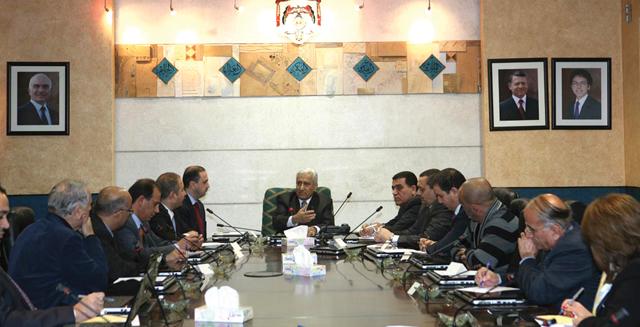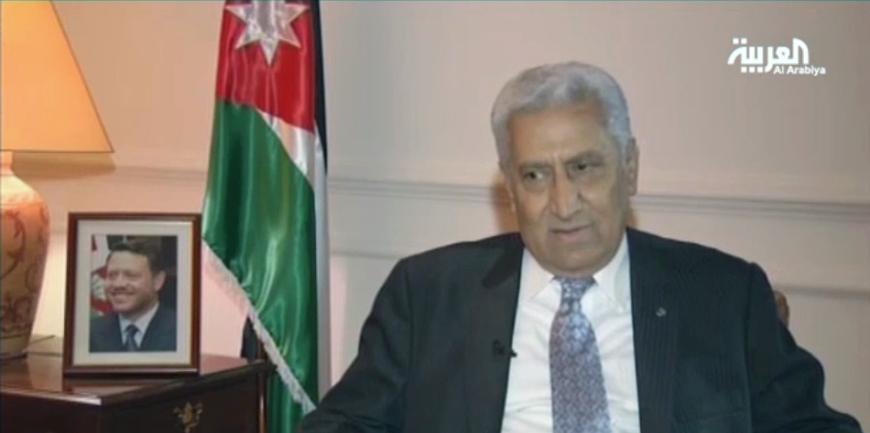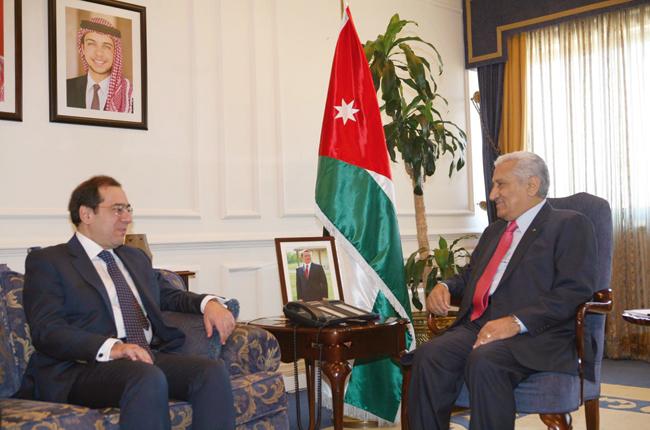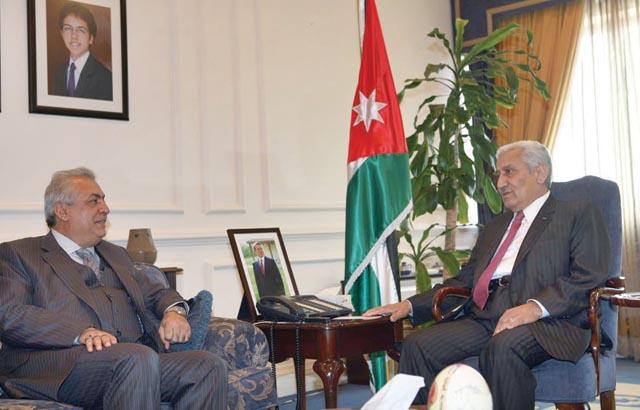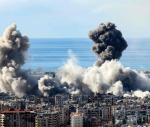AMMAN — Despite the challenges it is facing, Jordan remains focused on tackling its chronic energy deficit, which is taking its toll on the national economy, Prime Minister Abdullah Ensour said on Saturday.
Towards that end, he told chief editors of major dailies during a meeting at his office, the government has in place a host of ambitious projects and plans that include an Iraqi oil pipeline, a nuclear reactor and renewable energy ventures.
Ensour said the energy file is taking up a good per centage of the country’s national income, with oil imports costing around JD4 billion annually, constituting almost one-fifth of the country’s JD24 billion GDP.
With the continued disruptions in Egyptian gas supplies, which cost Jordan billions over the past years, the Kingdom was keen to come up with a strategy to meet its rising energy needs that takes into consideration the necessary diversification and the volatile regional situation, said Ensour.
This strategy is aimed first and foremost at having most of the energy needs met locally, thus highlighting the importance of studying and launching oil shale, nuclear and renewable energy projects.
According to the premier, work on such projects is on track and all will take their share of consideration by the public and their representatives in Parliament, whom he lauded for their performance to “serve the country’s higher interests”.
Parliament given credit
The premier particularly lauded the deputies’ performance during deliberations over the 2014 state budget, which they passed on Wednesday.
This Parliament “is showing more understanding of the country’s economic challenges and the need for speedy solutions”, said the premier.
On Wednesday, the Lower House passed the 2014 state budget after three days of deliberations, which drew criticism of expenditures as well as calls for more jobs and services.
He said his government is keen to have a strong Parliament which would serve the country’s interests, voicing optimism that the current House would prove to be an active legislature meeting people’s aspirations.
He noted that it is in no one’s interest to weaken Parliament, which represents the people’s power and whose job is to protect public interests.
Commenting on criticism that only 102 deputies of the 150-strong House attended Wednesday’s vote on the JD8 billion state budget, the premier noted that the vote took place at 10:30pm following marathon sessions that included 87 speeches by deputies, many of whom were unaware that the vote would take place that late hour. Of the 102 present, 58 voted for the budget, drawing criticism from media and political circles.
Ensour stressed the government’s keenness to reform the economy and reduce the deficit, but stressed that the government’s manoeuvrability in drafting the budget was very limited as almost JD7 billion of the JD8 billion were fixed expenditures that could not be reduced.
What the country requires are long-term solutions as no party can reform the economy in one year, he emphasised, highlighting that his government managed to reduce unemployment by the end of 2013 to 12.5 per cent, down from 14 per cent in 2012.
Ensour paid tribute to countries assisting Jordan’s efforts to tackle economic challenges, adding that the country pays around JD1.1 billion in interest on its JD17 billion debt.
‘No more hikes in electricity prices’
He continued that the energy file is one of the costliest for the country with electricity alone expected to cost JD970 million this year after the most recent rate hike, but stressed that there will be no more hikes.
The government, he continued, will work to address the country’s lack of energy sources by working on several parallel files, including nuclear and renewable energy.
Of Jordan’s imports reaching JD25 billion, some JD4 billion are spent on oil, which is a great amount that should be addressed, said the premier.
The country has been for years prospecting for oil through the efforts of international companies, the last being British Petroleum, which last week announced it was ending its operations in Jordan (see separate story). But he said oil exploration in the country would continue to be carried out by the National Petroleum Company.
Iraqi pipeline, refinery
Meanwhile, Jordan will continue to work on other projects to meet its rising energy needs, including an oil pipeline that will be built between the southern Iraqi city of Basra and Jordan’s Port of Aqaba.
Under the project agreement, Jordan will receive fees from the Iraqi government on any amounts pumped through its territory as well as around 150,000 barrels per day at discounted prices, said Ensour.
The problem remains that the Jordan Petroleum Refinery Company is not prepared to deal with this supply neither in terms of quantity nor quality.
Fortunately the Iraqi side is mulling building a refinery in Aqaba, leaving to Jordan the option of partnering with them in the project, added Ensour.
But this would not be enough to meet Jordan’s long-term energy strategy, he continued.
Jordan will also continue to work on the oil shale file in partnership with an Estonian company.
Nuclear option
As for the nuclear option, Ensour said it has to be studied well and should not be ruled out without proper reasoning.
Nuclear energy can provide Jordan with almost one-third of its future needs of electric power and can cut costs by around one-third, the prime minister said.
People have to understand all issues related to the nuclear energy option, including costs and safety measures, he explained.
Renewable energy
Meanwhile, the government remains keen to encourage investment in renewable energy sources, Ensour stressed, noting that the government has already given licences to 12 companies to generate electricity from solar and wind energy.
He added that more licences will be granted this year as the government has more than 80 applications it is currently studying. The aim, he continued, is to be able to generate 700 megawatts daily by the end of 2014, meeting almost a third of Jordan’s daily electricity needs.
At the same time, the country is also working to replace the Egyptian gas supplies, which have been disrupted repeatedly over the past years by acts of sabotage, with more feasible steady sources, Ensour noted.
Suspected militants in Egypt’s Sinai blew up the gas pipeline on Friday for the second time in less than a month, Egyptian security officials were quoted as saying by Agence France-Presse.
Militants had blown up a section of the same pipeline on December 31.
Militants have forced a halt to gas supplies to Israel and Jordan by repeatedly targeting another pipeline through Sinai following the 2011 overthrow of strongman Hosni Mubarak.
Political reform
The prime minister said economic issues will not distract the country from its ongoing political reforms as it is currently preparing two key laws which will soon be presented to Parliament: political parties and elections.
With the controversial Elections Law, he continued, the government will not start from zero and has several scenarios prepared by former governments and committees to choose from. He declined to elaborate, insisting that a satisfactory formula resulting in “a qualitative leap” will be produced.
He said that the government is also working to assert state authority, which was affected by regional developments as well as economic and labour demands.
But he underlined that state authority is a red line “as all should know that no party is bigger than the state”.

